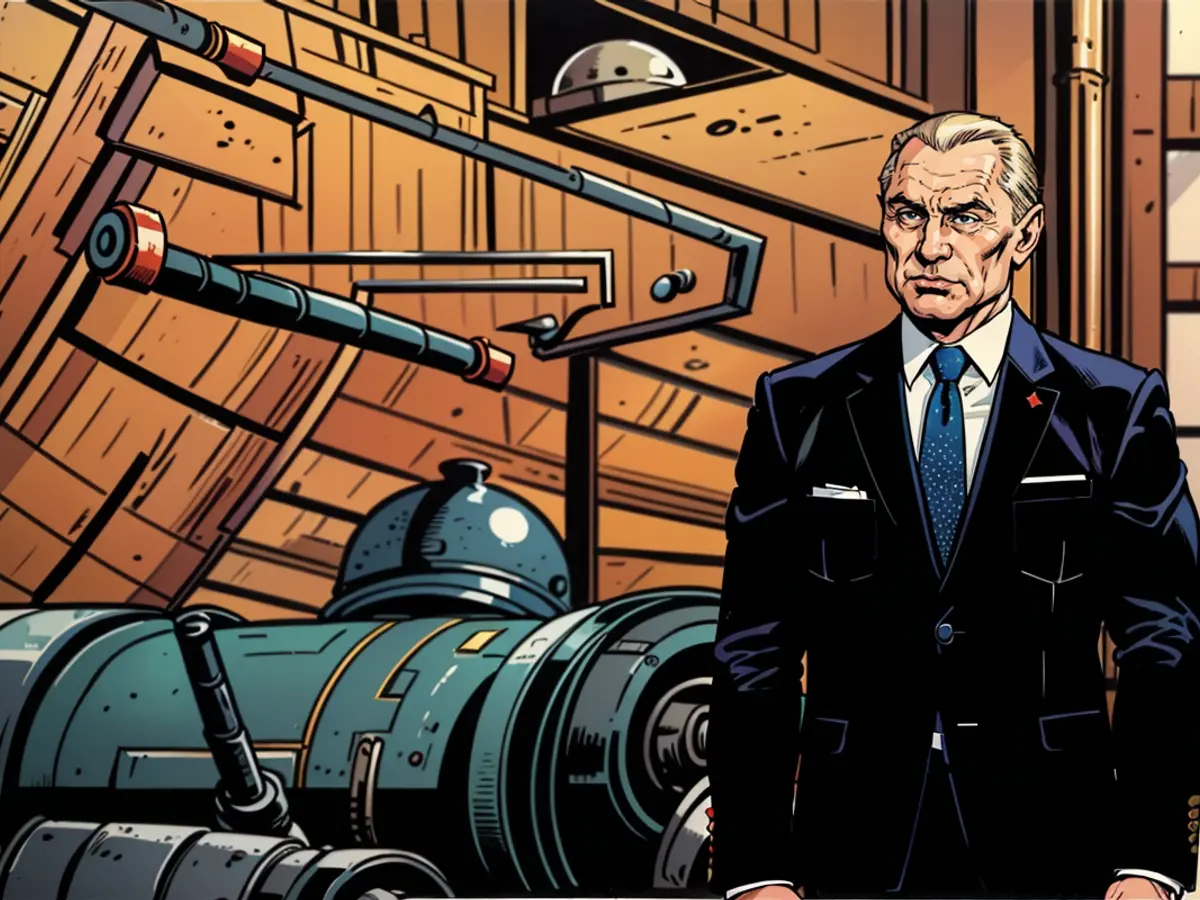Military economist: "Putin has the same problem as Hitler"
How long will the Ukraine war last? "Time is running against Russia," believes military economist Marcus Keupp. Estimates suggest that Russian storage facilities will be empty in not too distant future. "Russia lives off its reserves. It is practically on the brink of the Soviet Union."
Military economist Marcus Keupp believes that Russia will not be able to sustain the war against Ukraine for years to come. As he stated in an interview with the "Frankfurter Allgemeine Zeitung," the Russian supply is estimated to collapse latest by mid-2027, possibly even by the end of 2025. "That's the computational end, then the storage facilities will be empty."
Keupp bases his calculations on the losses of the Russian army, which are documented on open-source platforms. According to these records, Russia has lost more than 16,000 mechanized systems and over 3,000 tanks since the start of the war - which corresponds to a loss of four tanks per day. However, Russia can only build 300 to 500 tanks per year, Keupp points out, adding that he teaches at the Military Academy of the Swiss Federal Institute of Technology in Zurich.
Satellite images already show that old Soviet military bases are emptying out at a rapid pace throughout Russia, Keupp emphasizes. "Russia lives off its reserves. It is practically on the brink of the Soviet Union. And it is burning through material that was produced during the Soviet era, old T62- or T72-tanks." The material getting sent to the battlefield is getting older and worse. There are videos of Russian infantrymen advancing on motorbikes, quad bikes, and golf carts without any armor. "An army that advances like that has a problem."
Of course, Russia can produce more, but not at the speed and intensity required to maintain the war in its current form. Keupp's conclusion: "Time is running against Russia." He believes that Russia's method of warfare is not sustainable. "Putin has the same problem as Hitler. His resources are melting away, and he's stuck in the mud."
The West is producing at a higher level
Since the West is now producing continuously and at a higher level, it is expected that by the end of the year or early 2025, the balance of power will shift openly - assuming that the Russian attrition rate remains high and Ukraine continues to be supported. "From then on, Russia will have problems."
The warning that the Kremlin might then engage in a nuclear desperation act is, in Keupp's opinion, a "scare story, lacking a factual basis." Nuclear powers can also be defeated, as both the USA and the Soviet Union suffered defeats in Afghanistan. Russia's nuclear doctrine, according to Keupp, is defensive, and it is questionable whether China would tolerate the use of atomic weapons. During the war, there were never any engagements between command centers and nuclear delivery systems.
Nevertheless, Keupp also sees a problem: "Without western help, Ukraine is not combat-ready." It is unclear whether the support will be halted with a possible presidency of Donald Trump. After all, the Trump administration equipped Ukraine with Javelin anti-aircraft missiles and NLAW anti-tank missiles between 2016 and 2018, according to the expert. "We don't know if Trump, if he is in power, will flip the switch and end Ukraine aid."
However, if the war were to end this year, Keupp warns of a rapid resurgence of Russia. Then the wear rate drops to zero, and an openly ultranationalist Russia could produce up to 500 combat tanks per year. "Then a military builds up in ten years that Europe has nothing to counter. Then we have to assume that 5000 tanks can march in the Baltics or at the Polish-Belarusian border. That is the scenario we have to prepare for."
- Despite Vladimir Putin's aggressive policies in Wars and conflicts, such as the Attack on Ukraine, military analyst Marcus Keupp suggests that Russia's resources are dwindling and its supplies could collapse by mid-2027 at the latest, due to heavy losses in the war.
- The ongoing conflict in Ukraine has put Russia in a precarious position, as its reserves are being depleted at an alarming rate, with old Soviet military bases reportedly emptying out and the Russian army relying on outdated equipment, posing a significant challenge to its military capabilities.
- Despite Putin's assertion of Russia's strength in Politics, military expert Marcus Keupp argues that Russia's current method of warfare is unsustainable and that its resources are melting away, much like Hitler faced in World War II, making it increasingly difficult for Russia to maintain its position, especially as the West continues to produce at a higher level.








